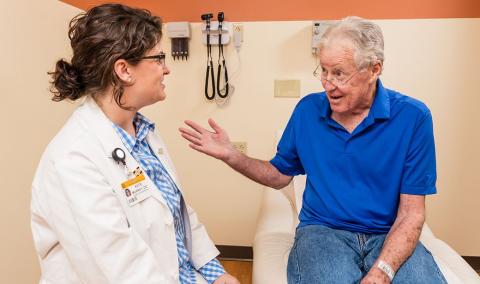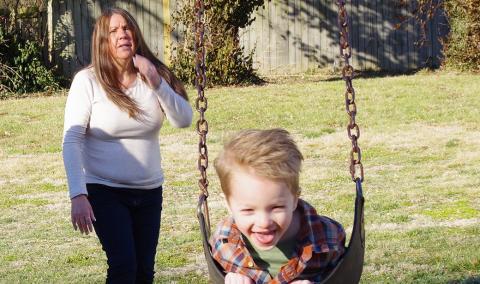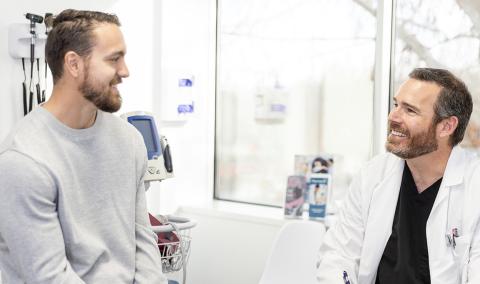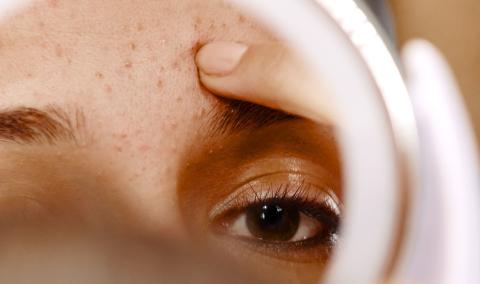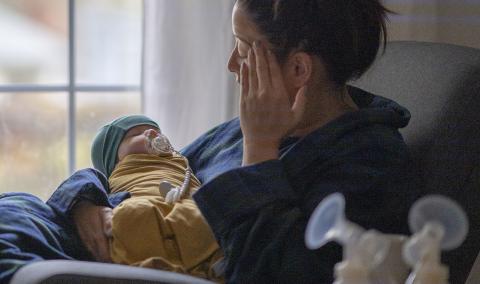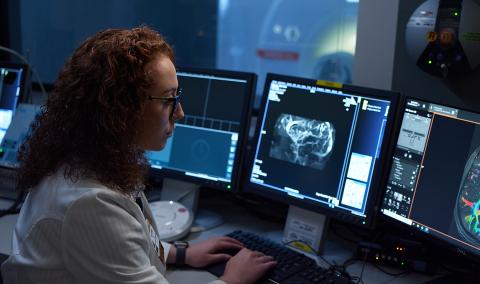You don’t have to travel to a bigger city to get nationally recognized urology care. University of Missouri Health Care’s urology program treats men and women of all ages as well as children. Our No. 1 goal is to help you get well and stay well.
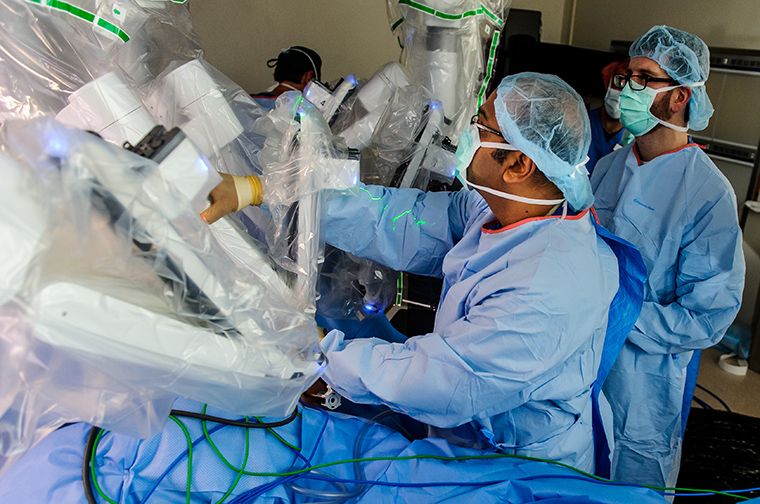
Our urology team
We are an experienced, collaborative group of physicians, nurses and support staff. Our urologists work closely with other medical professionals to provide you with comprehensive care. They have advanced skills and technology to provide less invasive treatment options, meaning you feel better sooner.
Our team specializes in:
- Children’s urology. This includes diagnosis and treatment of urologic conditions in our young patients.
- Kidney transplantation. We offer surgical implantation of a donor kidney if you have advanced kidney disease or damage.
- Medical management of urological conditions. This treatment includes medication therapy and lifestyle modifications.
- Urologic oncology. We provide treatment for cancers that affect the adrenal gland, bladder, kidneys, prostate, testicles and ureter.
- Urological surgery. We provide surgical procedures to treat incontinence, kidney stones, infections, urinary stone disease, enlarged prostate, male infertility, urologic cancers and more.
Urologic conditions we treat
Our team treats the male and female urinary systems as well as the male reproductive system. Conditions we treat include:
- Cancers of the urinary system. These include cancer of the adrenal gland, bladder, kidneys, male reproductive organs and ureter.
- Congenital obstructive uropathy. A condition where a baby is born with a blockage in urine flow.
- Enlarged prostate. Common as men age, an enlarged prostate can cause a weak urine stream, difficulty urinating and potentially bladder stones, infection or reduced kidney function.
- Hematuria. This condition causes blood in the urine.
- Hypospadias. A condition where a baby boy is born with the opening of his penis on the underside instead of the tip.
- Kidney stones. These hard formations of minerals and salts in the kidneys can cause pain when passing through the urinary tract.
- Male infertility. A health issue that affects a male’s ability to get a fertile female pregnant.
- Urinary incontinence. A loss of bladder control that may cause urine leakage when you laugh, cough or sneeze, or sudden strong urges to urinate without enough time to reach a bathroom.
- Urinary stone disease. Solid particles or “stones” in the kidneys, ureter or bladder that are often painful to pass when urinating.
- Urinary tract infection (UTI). Most common in women, a UTI is an infection in the bladder, kidneys or urethra.
- Vesicoureteral reflux. Most common in infants in children, this condition occurs when urine backs up into the kidneys rather than passing through the body.






